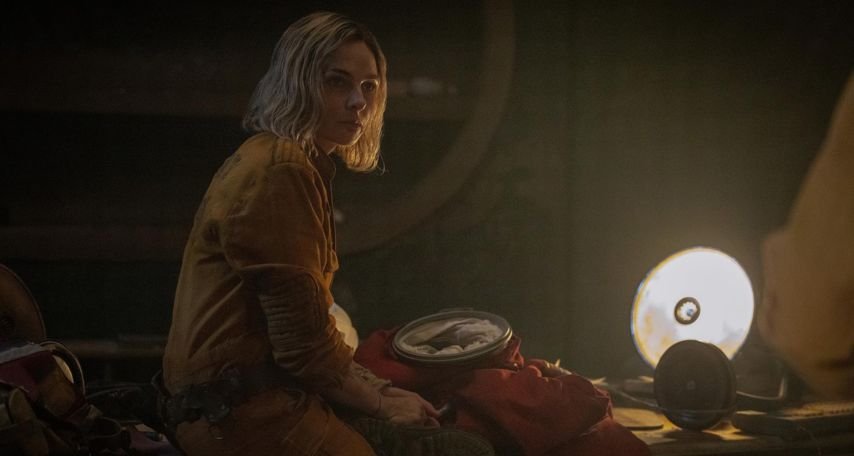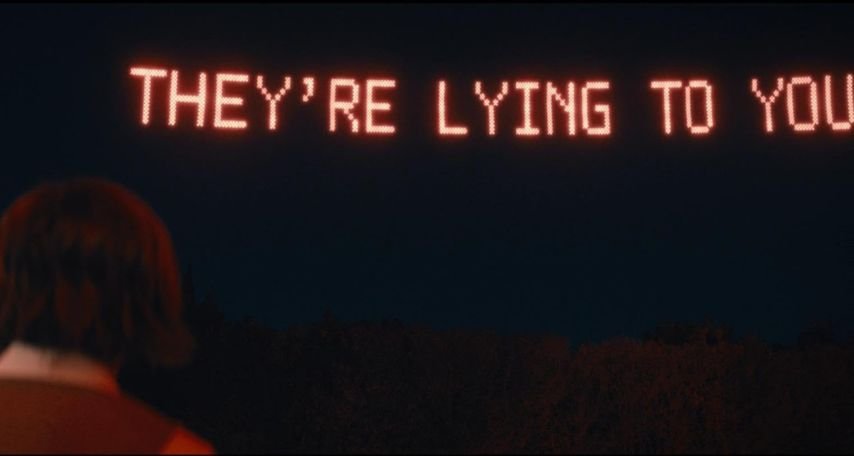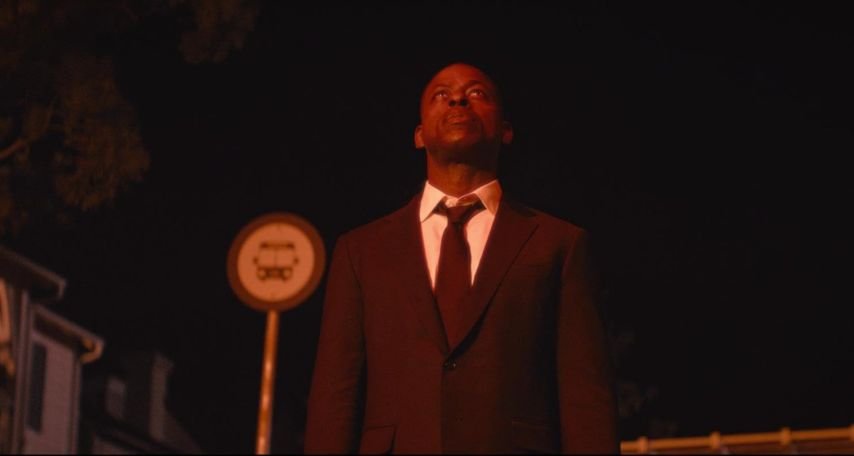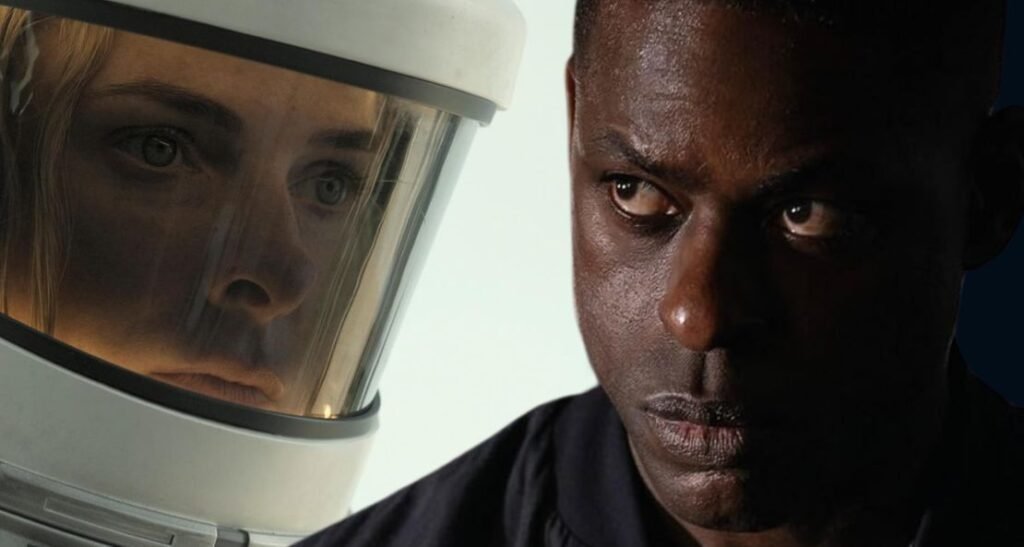Before we dive into the rabbit hole of dystopian deception, a quick disclaimer: if you haven’t watched Silo or Paradise, you might want to tread carefully.
I’ll try not to spoil too much, but when discussing the philosophical weight of these shows, some revelations are inevitable.
Consider this a soft warning—proceed with curiosity, much like our protagonists, but remember, knowing too much might change everything.
Apple TV+ and Disney+ has a knack for tapping into the collective unease of modern society. Silo and Paradise are no exceptions.
Both shows weave intricate narratives around the people who dare to question their reality, peeling back layers of deception that have kept their worlds intact.
But do these so-called heroes truly liberate their societies, or do they doom them to an uncertain, and possibly worse, fate?
The real world isn’t short on examples—just look at the tangled web of governmental disinformation, or the current investigation by Doge and Elon Musk into USAID’s involvement in global operations.
Sometimes, knowing the truth doesn’t set you free; it only makes you realize how trapped you really are.
The Illusion of Safety in Silo
At first glance, Silo presents a world of order. The subterranean structure houses thousands of people who believe the outside world is uninhabitable.
Society thrives under rigid rules designed to maintain stability, including the ominous decree: if you ask to leave, you will never be allowed back.

Juliette Nichols emerges as the story’s central force, an engineer turned investigator who gradually uncovers a massive conspiracy.
By the end of Season 1, she makes a dramatic choice—stepping outside the silo, only to discover a world littered with the bodies of those who made the same decision before her.
The reality isn’t what she expected, and the price of knowledge is devastating. Instead of escaping to a better future, she realises she’s trapped in an even larger, more sinister system.
Now, she wants to go back—not for herself, but to warn the people she left behind.
But will they even believe her, or will her return destabilise everything?
There’s something deeply unsettling about this. In our own world, we’re bombarded with messages about what is and isn’t true.
Governments, corporations, and shadowy entities curate reality for public consumption.
Those who challenge the narrative—whistleblowers, investigative journalists, rogue tech moguls—often find themselves exiled in one form or another.
Juliette’s story isn’t just fiction; it’s a reflection of a timeless struggle between truth and control.
The Struggle for Control in Paradise

Paradise presents a different kind of enclosed dystopia. The bunker’s inhabitants believe they are the last remnants of civilisation, safe from a world beyond their underground walls.

Xavier Collins, a security officer within the bunker, starts asking questions that his society doesn’t want answered.
The deaths of key figures and the elimination of those who resist make it clear—truth is a dangerous commodity.
Like Juliette, Xavier pushes against the system, but at what cost? His discoveries threaten to tear down the structure that keeps the bunker’s population in check.
When four scientists are sent outside to test the air quality, they relay that the world is habitable and even find a survivor. But before they can return, they are eliminated.
The fear? That their findings might encourage the bunker’s inhabitants to leave, exposing the bunker’s existence to outsiders who might seek refuge—and, potentially, control.
Consider the consequences of tearing down a lie that has kept people safe.
If a well-crafted illusion provides security, is it morally justifiable to shatter it?
These aren’t just theoretical musings—societies throughout history have been built on selective truths.
From the control of information during wartime to modern disinformation campaigns, it’s often those in power who get to decide which realities are acceptable.
The question is, should we be grateful for the carefully curated narratives, or should we burn it all down and accept the chaos that follows?
Breaking Down the Fallout
1. The Exodus Dilemma
Juliette leaves the silo thinking she is embracing freedom. Instead, she finds a wasteland.
What she learns outside contradicts everything she believed, but returning isn’t just about personal survival—it’s about warning those still inside. But will her message be received as salvation or treason?
Xavier, meanwhile, watches as those who question the system disappear. He sees the pattern, but understanding it isn’t enough.
The real challenge is what to do with the information. Do you dismantle a system that, while deceptive, has kept people alive? Or do you accept that some lies are necessary for survival?
2. The Fragility of Order
In both Silo and Paradise, society is built on a delicate balance. Knowledge, in the wrong hands, can unravel everything.
The truth about the outside world isn’t just an intellectual curiosity—it’s a fundamental challenge to their way of life. If the system collapses, how many lives will be lost in the process?
In Silo, Juliette’s discoveries directly threaten the power structure. If the truth spreads, the very foundation of the silo’s governance crumbles.
The judicial sector, run by Sims and Bernard, doesn’t punish dissent for cruelty’s sake—it does so to prevent anarchy.
Paradise explores a similar theme. If Xavier fully exposes the lies underpinning his world, what’s left?
The illusion of safety is powerful, and without it, the entire bunker might descend into chaos.
The question is no longer just about personal freedom, but collective survival.
Are They Really Heroes?
Traditional storytelling frames truth-seekers as heroes, but Silo and Paradise complicate this idea.
Are Juliette and Xavier liberators, or are they harbingers of doom? Both characters are right to question their realities, but their actions could leave their people worse off than before.
Juliette’s attempt to re-enter the silo may be the biggest test yet. If she returns and tells the truth, will she incite rebellion, or will she be silenced like those before her?
If Xavier takes a stand, will he bring down the very system that keeps his people alive? In these worlds, the difference between hero and villain is razor-thin.
The Price of Knowing
Both Silo and Paradise craft thrilling narratives around the pursuit of truth, but they also force us to ask whether knowledge is inherently valuable.
Some truths set us free; others destroy the only reality we’ve ever known.
And what about us? We’re living in a time when truth itself feels like a shifting landscape.
From government disinformation to corporate narratives that dictate our lives, we’re constantly fed conflicting versions of reality.
The investigation into USAID’s global influence, the questions surrounding Elon Musk’s war on controlled narratives—these aren’t just footnotes in a news cycle.
They’re modern echoes of the same dilemmas faced in Silo and Paradise.
So, is it better to live comfortably in a controlled illusion, or to risk everything for an uncertain future?
The answer, like everything else in this world, depends on who’s telling the story.
Where to Watch
If you want to experience the intrigue for yourself, Silo is available to stream on Apple TV+, while Paradise is available to stream on Hulu in the U.S. and Disney+ in the U.K.
Both series promise a gripping journey through the blurred lines of truth, control, and survival.
You might also like:
- Severance Season 2: Twists, Mind Games, and the Office You’ll Never Escape
- Fallout TV Series First Trailer: Unveiling the Post-Apocalyptic Wasteland
- The Walking Dead: The Ones Who Live – The Case for (and Against) Season 2
- Silo Season 3: What We Know So Far About the Next Chapter in Apple TV+’s Sci-Fi Epic
- American Primeval: Netflix’s Brutal Western and the Controversy It Ignited


